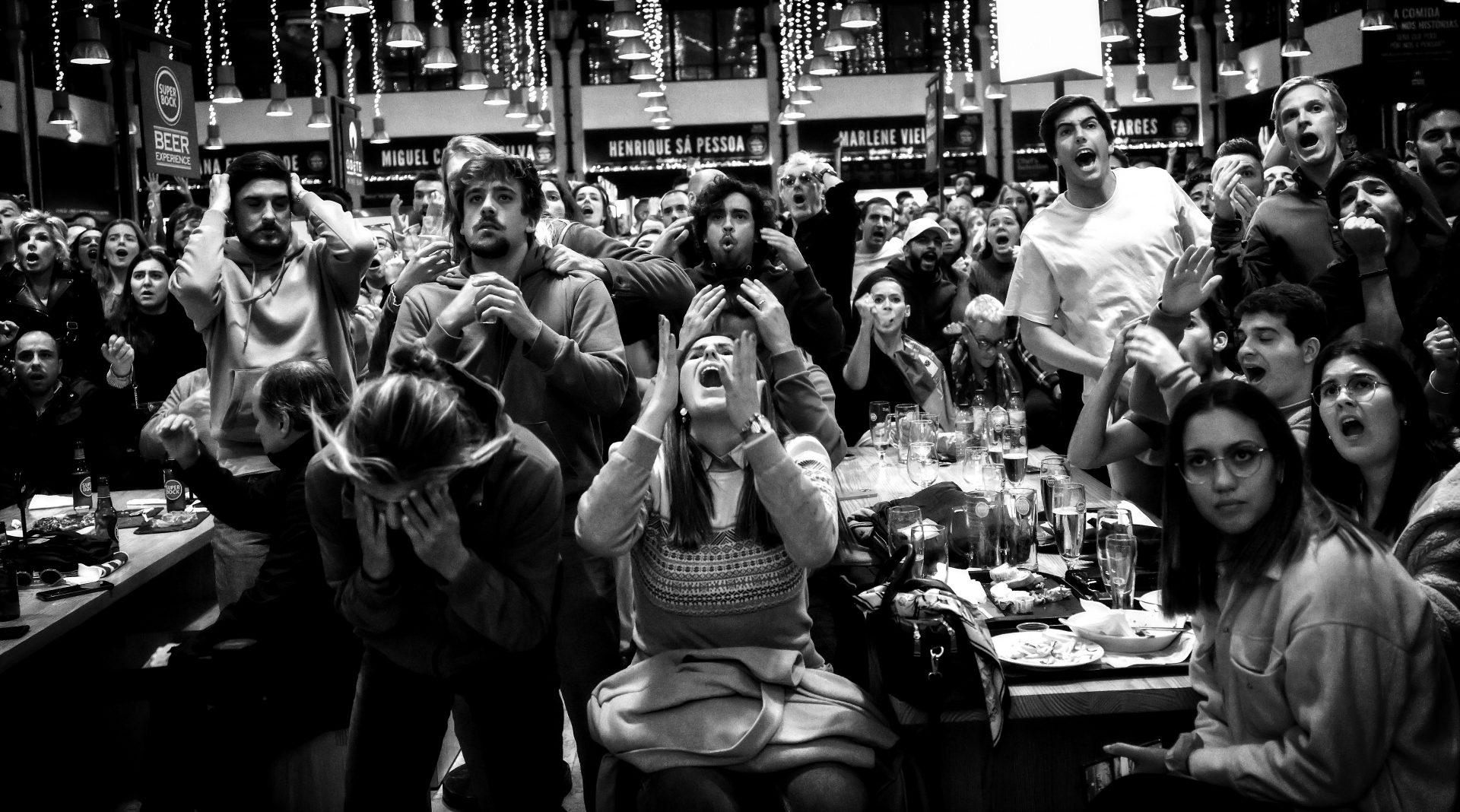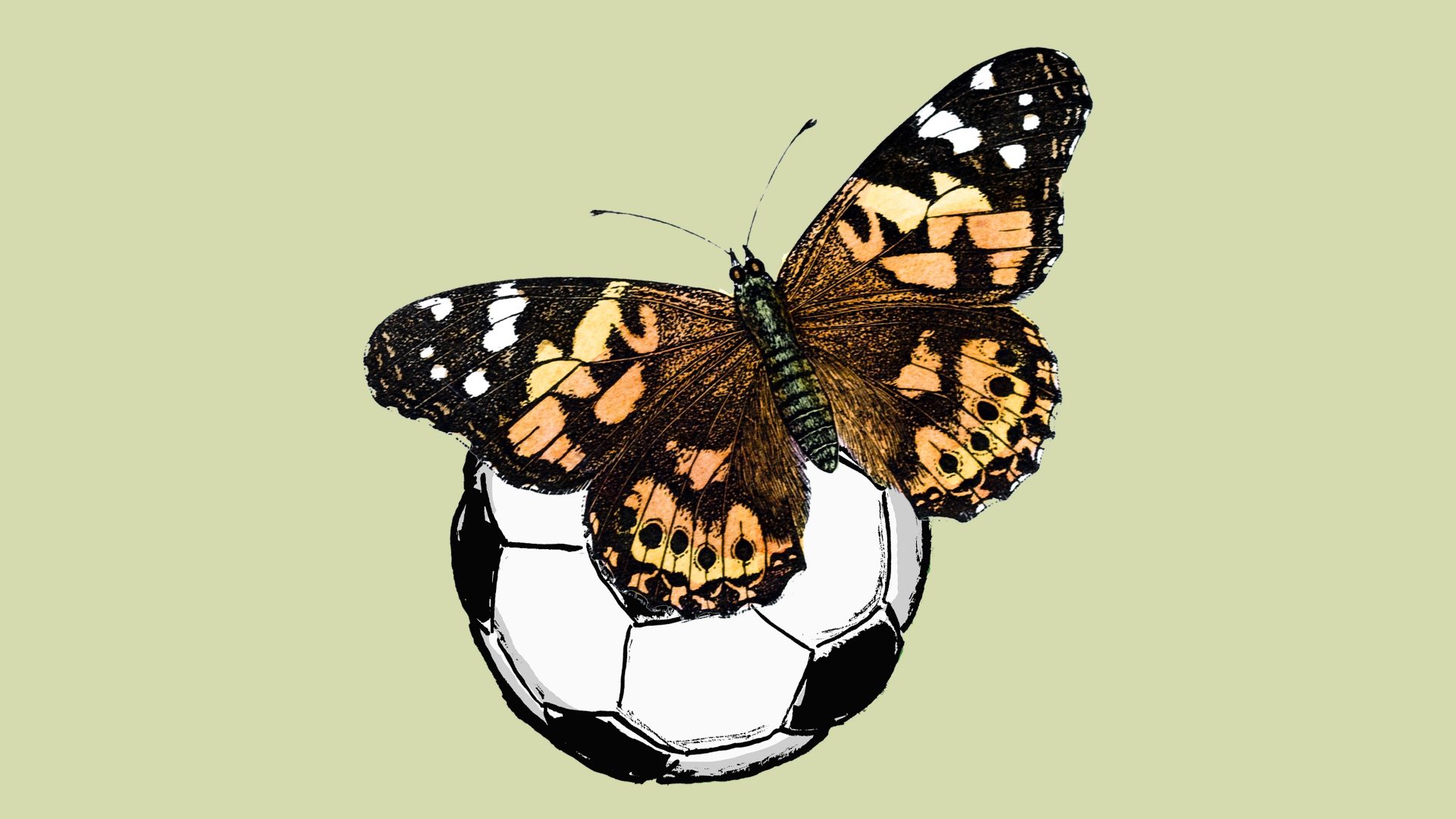The World Cup is not yet over, but huge lessons have already been learned.
Brazil gave us a mouthwatering glimpse of samba soccer in their round-of-16 demolition of South Korea, then fell in the next match when confronted by Croatia, a team which mixes fighting spirit with moments of flair. Then England’s years of hurt were pushed to 56 in almost exactly the same fashion; a stylish display against Senegal followed by defeat against a France side that, fittingly with half of their finest Bleus hors de combat, battled like a wounded animal.
“We were strong in the storm. The difference was mental strength,” said Hugo Lloris, their captain and the keeper over whose goal his Tottenham teammate Harry Kane blazed that fateful second penalty.
Mental strength. But also game craft, nous, knowing how to get across the line. Brazil, England, Belgium, Germany, Portugal, Spain all let great expectations fall through their grasp like grains of sand through the fingers.
Not one of them lasted as long as Morocco. Say that again? Morocco! Didn’t Pelé tell us that Africa would be World Cup contenders by the turn of the century? His prophecy proved premature by a couple of decades, but Morocco travelled down from a north Africa besotted with football, to Qatar,
a nation at the centre of world football for the first time.
Through faith, committed defence, and seemingly impenetrable will, Morocco reached the semi-finals without conceding a goal to Croatia, Belgium, Spain or Portugal. They defended like soldiers for the cause.
Against Spain, Sofyan Amrabat of Fiorentina had physio through the night and, with injections into an injured back, ran through 90 minutes, and then
the extra 30 minutes, to smother one of the favourites out of the tournament. “I think this is very beautiful for football,” said Amrabat. “We fought for our country, for our lives.”
If beauty is perseverance until, above all else, you win, then yes, Morocco have embodied that. As Amrabat spoke – and prepared for the next encounter, the next injection, perhaps – Spain’s coach Luis Enrique fell on his sword. His belief in youth, and in tiki-taka, the pass-and- possession game that won the 2010 World Cup in South Africa, was undone.
Brazil’s Tite, the manager who dared to dance with the boys when his team
were both scoring and winning, also paid the price. He said he would resign, win or lose. When the samba stops, the boss has to go.
Tite’s captain, Neymar, scored one truly beautiful goal. But his presence in the game was overshadowed, as many, many have been, by the enduring wizard Luca Modrić, still the beating heart of Croatia at the age of 37. Modrić is a true playmaker, a star who literally makes others in his team play. He stepped up to take a penalty in the shootout while the PSG forward watched on until the shootout lottery was already lost. He was due to take the fifth penalty kick on which the greatest pressure rests, but fate and the men entrusted before him decided there would be no fifth penalty.
Neymar, like Cristiano Ronaldo, divides opinions. No one should question their individual talents, but their World Cup ended in self-pity. For what it is worth, my opinion is that other players in Brazil’s team blossom without Neymar on the field. And Ronaldo? Great career, CR7, but not a team man. His fifth and presumably final World Cup, like his second coming at Manchester United, ended in tears of self-delusion.
Brazil and Portugal share more than a common language. They try to play the beautiful game but, unlike the Brazilians of the 1950s and the 1970s (and even the Croats of today) their most gifted player seeks adulation, fame and fortune above and beyond the value of teamwork.
Lionel Messi, tiptoeing towards athletic dotage, does at least combine magical moments with an appreciation of team ethic. His countrymen lack the individual qualities that surrounded Diego Maradona in the past, but aside from the ugly aspects of their wretchedly refereed match against the
Netherlands, the Argentines certainly know how to toil in support of their
playmaker.
And toil is admirable. The French said so after eliminating England, and Morocco embodied that tenet in extremis.
Morocco showed us more than just humongous defending. Achraf Hakimi (of PSG and born in Spain) and Hakim Ziyech (of Chelsea and born in the
Netherlands) are swift to turn defence into attack, the epitome of modern wing-backs. Amrabat, also from the Netherlands and now reportedly a transfer target for Liverpool, embodies courage bordering on recklessness that his older brother, a former national team player, once displayed by playing on through concussion.
They live up to their chosen country’s moniker of Atlas Lions. The Royal
Moroccan Football Association, which for decades has thrown money at
unsuccessful World Cup bids, recently began playing the dual nationality
game that Europe mastered long ago.
Would France have become world masters without Zinedine Zidane (born in Marseille to Algerian Berber parents)? Karim Benzema has a similar lineage. Thierry Henry and Kylian Mbappé were children of the Paris suburbs, but much of their roots, their skills and perhaps their desire lies in France’s former overseas dependencies and possessions.
Long before them, Portugal mined African colonies for Eusebio and Mario Coluna in the 1960s, and before them the extraordinary goalscorer Fernando Peyroteo.
The process cuts both ways. Dutchmen now accuse Ziyech and Amrabat of “mercenary” inclination because they were born in the Netherlands but chose to represent Morocco, land of their fathers. Hakimi’s birthplace is Madrid, and goalkeeper Yassine Bounou is Canadian by birth, Moroccan by
upbringing.
Their manager Walid Regragui, incidentally, was hired four months ago. Everything he knows about football he learned in his native France. It’s a game of give and take.




